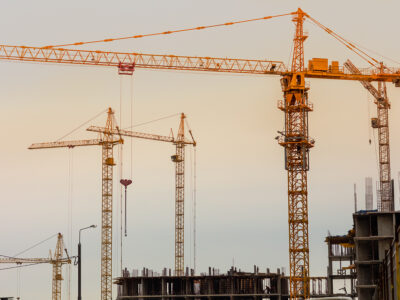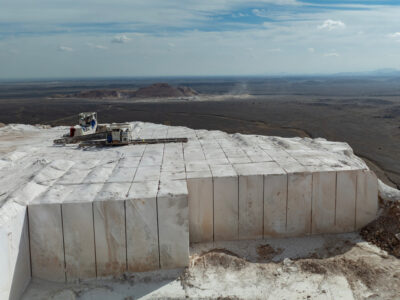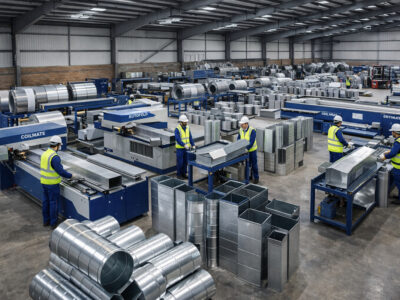As the most basic of the construction process, formwork is the term given to either temporary or permanent moulds into which concrete or similar materials are poured. With the building industry in the Middle East taking on mammoth proportions, European formwork manufacturers are profiting from the explosion.
The European formwork industry has benefited tremendously from the construction boom in Dubai and the Middle East.
“Historically, a number of formwork companies came from Germany. I believe the Germans are the market leaders in the world in formwork technology and they are always the first with innovations,” says Alain Rossetto, Middle East general manager, VSL.
All the projects in Dubai are on a fast track, sometimes procurement managers need to get in their orders yesterday. – Alain Rossetto, Middle East general manager, VSL.
German manufactures have for many years, been forced to offer their equipment on a 50% discount.
“This price pressure in the Gulf was triggered off by the initial, existing low labour costs. Though British formwork technology is cheaper, its use is considerably more time-consuming. The construction industry has recognised these coherences, both in the domestic markets and now in Dubai and the Gulf,” says Ekkehart Misch, formwork director, GHI.
In comparison to British formwork technology, other European producers have been presenting innovative technologies. These improvements have made faster and high-quality casting possible.
“The European formwork equipment is easier to use in the application with fewer parts needed in a complete system. Logistics and lost-item costs have been reduced and unskilled labour learns the secure handling of the equipment quicker. Additional compatible, reliable safety railings are also delivered to prevent accidents.”
In times of rising labour costs and shortened manufacturing deadlines, large and experienced construction companies from the Gulf have recognised their advantages in using this equipment.
Several construction firms dispose of a large amount of their own stock and support their own department of formwork planners.
Alongside the established companies is a large array of small, young building companies qualified to offer the full service presented by renowned formwork suppliers, enabling them to compete against established companies in the market.
All successful formwork systems consist of a vast amount of standardised single components.
“The best known example is the wooden beam (girder). The wooden beam, used for wall and slab formwork – known as the H20 beam – and building sites, can no longer do without it,” says Misch.
“The invention of the wooden beam is often credited to Doka and it remains undisputed that Doka was able to break into the market with this product.”
For the European market, this item is standardised and described as a product norm. Endless amounts of reproductions are offered on the market. It was initially produced in Europe and is now available from Asia.The same applies to the steel prop. Hünnebeck was responsible for the initial entry of steel prop in the market. Here again, German-made products won over the competition from southern European countries.
Both items, because of their versatile deployment, have been successfully sold as single components in Dubai and the Gulf.
“When both components are connected correctly, they form a complete system. The challenge in the market comes from the prices. New suppliers offer a lower price for these systems than more established manufactures. This applies specifically when the services, such as shop drawings, assembly assistance and the respective financing are included in the delivery,” says Misch.
Cheaper imitations of formwork systems or single components from systems are flooding the market. – Ekkehart Misch, director, Formwork, GHI.
VSL supplies and stocks form ties from Germany to the formwork industry.
“All the projects in Dubai are on a fast track, sometimes procurement managers need to get in their orders yesterday. We usually supply the 15mm tie rods, but we always keep a stock of the 20mm and 26.5mm,” says Rossetto.
The more unusual measurements are used when the formwork has to support a high load in heavy civil construction.
VSL also has a band-saw for cutting form ties and stress bars imported from Germany.
“Stress bars from Germany are a growing market in the Middle East. It is also a very competitive market as we are up against copy- cat products as well. I like the benefits of German products and the guarantees that come with that, as everybody in Dubai has issues with lower quality products,” says Rossetto.
The demand on constructions sites has changed and parallel to well-known manufacturers, there is the consistent growth of alternate suppliers, who distribute replicas, originals and second-hand parts.
The competition for modern formwork is still taking place on the building site. Here, cheap labour is still seen as the biggest reason for using the apparently expensive formwork technology.
“Cheaper imitations of formwork systems or single components from systems are flooding the market, and these similar products come with safety risks for construction companies in the Middle East,” says.
“Chinese manufacturers, in addition to their own products, have also accumulated a considerable amount of user-knowledge and are about to prove their competence beyond their borders,” says Misch.
European manufacturers will need to take heed of these rising challenges coming from other parts of the world.
“Their counter-arguments of defective service, inability to deliver, unsecured quality or no guarantees from alternate providers are today partly justifiable and should, from a construction industry viewpoint, be considered in the competitive comparison,” says Misch.
Almost all European manufacturers, in support of their own systems, allow local manufacturers to produce large amounts of steel parts in Dubai.
“A competing factory in India or China does not have to shy away from this comparison in production. The quality seal ‘Made in Germany’ may soon be replaced with ‘Engineered in Germany,’ says Misch.
As diverse formwork providers merge in terms of quality and pricing, the construction industry will be the ultimate winner.




